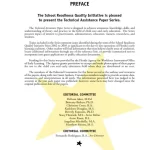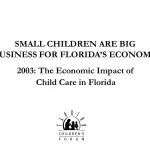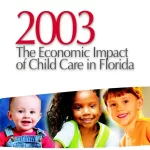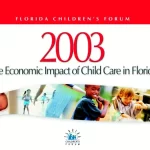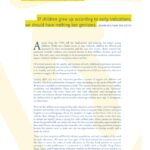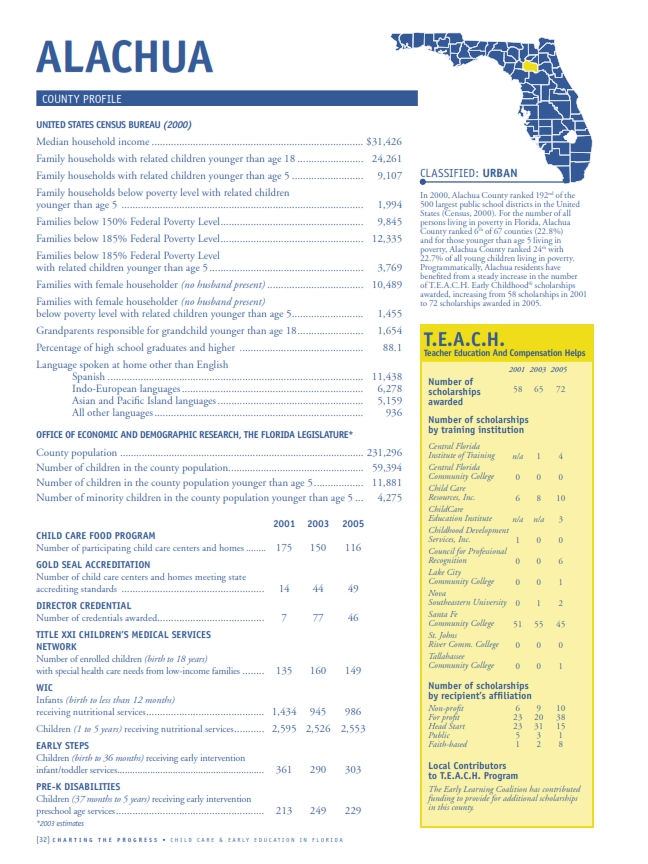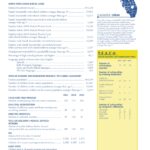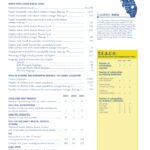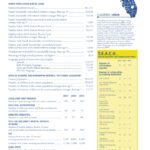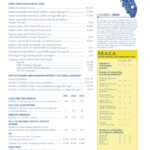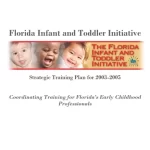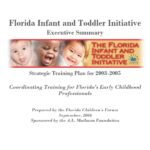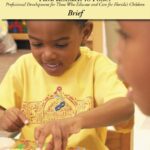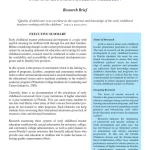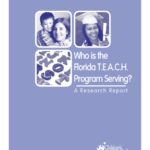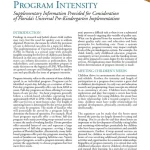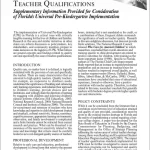In our effort to support quality services, the staff of the research department at the Children’s Forum provides access to research advances in early care and education practices and development. As an overwhelming amount of research information is available on various topics in the field, a goal of the department is to synthesize, condense, and share research findings in user-friendly formats for broader use in the field both in state and national endeavors. Currently, staff are involved with other initiatives including original research and the coordination of research and policy for services for use in statewide decision-making, increased professional education, and general awareness. As accountability in the field of early care and education increases, the staff of the research department are focused on providing up to date and relevant information to the field that is supported by evidence of various sources and degrees.
The 2002-2005 Technical Assistance Paper Series is designed to advance awareness, knowledge, skills, and understanding of theory and practice in the field of child care and early education. The Series presents topics of interest to practitioners, administrators, educators, trainers, researchers, and students. Topics included in the Series represent issues identified during the term of Florida’s statewide School Readiness Quality Initiative from 2002 to 2005 as significant to the day-to-day operations of Florida’s early learning coalitions. Other readers will find information that may help to clarify areas of confusion, locate additional information through use of the reference lists, or provide summarized text to incorporate into grant applications or public education documents.
To achieve a system of financing that supports quality early care and education for all children, there is a need for a greater public investment and better resource allocations. The Forum contracted with MGT of America, Inc. to conduct a first-ever study of Florida that analyzes the economic impact of Florida’s child care industry on local and statewide economies. The study challenges businesses, financial leaders and policy makers to discuss the child care industry as a vital component of Florida’s economy.
Quality child care and early education provides a system of support for children and families. The level and intensity of support varies depending on the needs of families and the resources available in communities to help.
This report is framed by three issues: quality, availability, and affordability. These three issues are often referred to as the “trilemma” of early education. The terms “child care” and “early education” used throughout this resource are inclusive of early learning programs, school readiness, and preschool services for children birth to age five and services for school-age children up to age 12 during out-of-school time.
Use this data to assess the value of early education in Florida.
Quality, affordability, and availability of services are three critical factors to consider in examining the child care and early education system. These three issues are often referred to as the “trilemma” of early education. Charting the Progress in Child Care and Early Education is a compilation of data related to this trilemma in Florida. Trend and other data are included in this edition from a variety of sources. These various perspectives (local, urban, rural, and state) provide us with an opportunity to better examine system nuances. This resource can be a valuable tool as we adjust our lens and sharpen our focus to more effectively address the needs of our children, families, employers, and early education workforce.
Because the training and professional development of early childhood professionals is directly related to the provision of quality infant and toddler care, our goal is to coordinate all of the training efforts for infants and toddlers in the state to ensure that gaps are analyzed and resources maximized for the benefit of young children. The purpose of the Strategic Training Plan is to identify the training needs of Florida’s infant and toddler early childhood teachers, coordinate the training delivery, establish a communications system, and define goals that will lead future work efforts. This document will remain a “living,” working document because of the work left to accomplish for infant and toddler care in Florida.
The Making a Difference! Research Profiles are a series of research reviews designed to synthesize existing, relevant studies on topics of particular interest to the child care and early education field. Each Profile consists of a comprehensive set of research-based, presentation-ready training materials intended to reach audiences in the form of two-day professional seminars. The materials provide trainers with extensive resources in three-ring binder format to share with their participants, including talking points, PowerPoint presentations, fact sheets, handouts, and reference lists.
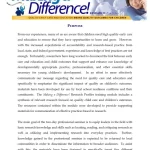
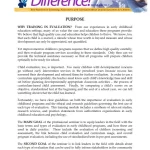
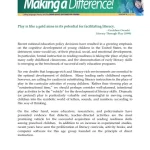
The Early Learning Coalition of Orange County contracted with the Children’s Forum to collect data, analyze and report on the status of child care and early learning in the county in the spring of 2006. The data and analysis provides the basis for the development of future plans and priorities for the Coalition guided by evidence-based practices to improve outcomes for children, families, and the early learning community.
This study, commissioned by the Early Learning Coalition of Seminole County, investigates the status of the child care workforce, turnover in child care centers and family child care homes, and educational background data. Data were compiled and analyzed from surveys completed by 51% of the owners / directors in child care settings in the spring and summer of 2006.
The TEACH Program addresses the problems of poor education, low compensation, and high turnover in the child care sector by providing early childhood professional development opportunities for teachers, directors, and family child care providers. Since the Program went statewide in 1998, a database has been maintained with data on each participant. Analysis of three-year program data will enable Forum staff, teachers, educators, and policymakers to become educated on TEACH recipients, coursework, and classroom outcomes.

